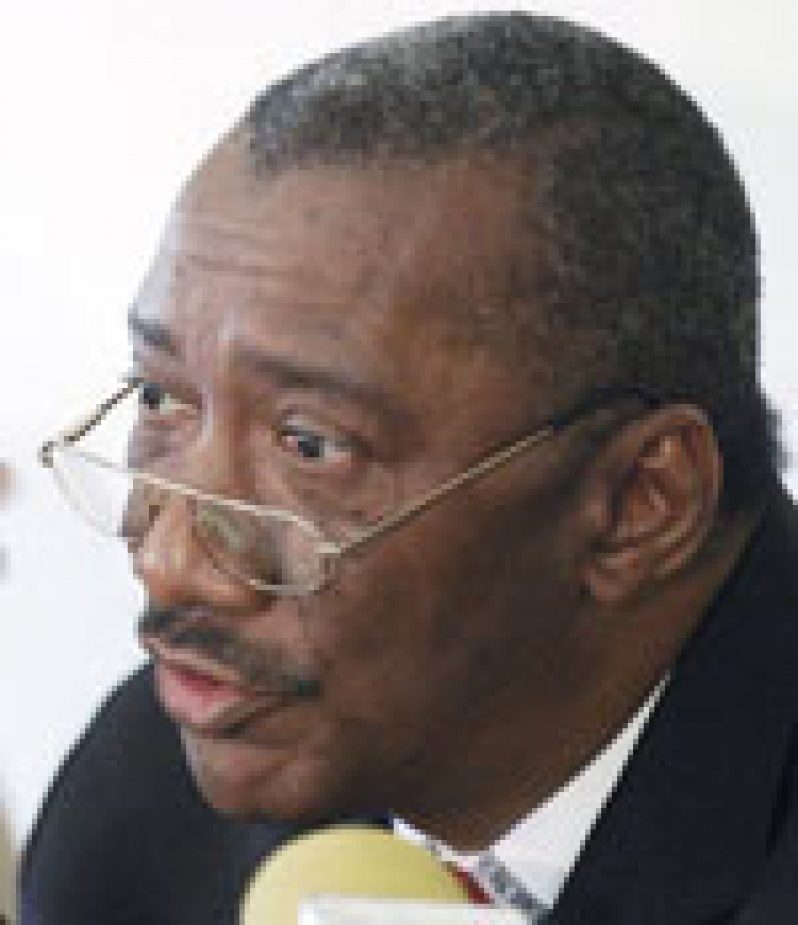EXECUTIVE Director of the Caricom Implementation Agency for Crime and Security (IMPACS), Francis Forbes, has underscored the real impact of crime and insecurity on the Regional economy.
 “Security and development are both flip sides of the same coin,” he stressed in his address to the recently concluded Guyana Investment Conference in Georgetown.
“Security and development are both flip sides of the same coin,” he stressed in his address to the recently concluded Guyana Investment Conference in Georgetown.
Citing statistics presented in UNDP’s 2011 Caribbean Human Development Report, Mr. Forbes pointed out that the cost of gang-related crime is between 2.8 and 4 percent of Gross Domestic Product in the Region.
He went on to add that, according to the same report, crime costs Jamaica “over 529 million dollars a year in lost income”, while noting, “in Trinidad, a one percent reduction in crime would boost tourism revenues by USD$35 million per year.”
Mr. Francis Forbes is a graduate of the Canadian Police College, the Metropolitan Police College and Bramshill Senior Police College, the latter two of which are located in the United Kingdom. He holds a degree in law, with honours, as well as a diploma in public administration.
The Executive Director, who has been at the helm of CARICOM IMPACS since June 2011, expressed grave concern about the emerging threat to the Region by transnational, organised crime. He identified illicit trafficking in all its aspects, illicit trade in goods and services, money laundering, corruption, as well as cyber and electronic crimes as being among the newer security challenges.
Saying that cybercrime is one of the fastest growing areas of crime, he noted: “More and more criminals are exploiting the speed, convenience and anonymity that modern technologies offer in order to commit a diverse range of criminal activity.”
To underscore the economic impact of cybercrime, Mr. Forbes stated, “In 2007 and ’08, the cost of cybercrime was estimated at approximately USD$8 billion. As for corporate cyber espionage, cybercriminals have stolen intellectual property from businesses worldwide worth up to US1 trillion.”
Cyber criminal trends identified in the Region, he noted, include hacking, credit cards and bank fraud, lottery and telephone scams, identity theft, counterfeiting, skimming, and phishing.
Lottery scams are especially prevalent in Mr. Francis’s home country, Jamaica. According to the website of the US Embassy in Jamaica, “The American Citizen Services section in Kingston receives frequent enquiries from citizens who have been defrauded of hundreds and even thousands of dollars by (lottery) scammers (who) lead victims to believe they have won a drawing or lottery, but the cash or prizes will not be released without upfront payment of fees or taxes.”
“In 2011, more than 229 sites were hacked,” Mr. Forbes stated in reference to Jamaica, “including governmental agencies, tertiary institutions and private institutions.”
Pointing to enforcement there, he informed the audience, which included diplomats, government functionaries and international technocrats, that the Cybercrimes Unit of the Jamaican Constabulary Force (JCF) has investigated more than 3,400 incidents of cybercrime within the last two years.
Turning to the issue of corruption, Mr. Forbes noted that the corruption of public officials and law enforcement officers has, over the years, significantly affected the Region’s ability to effectively address these threats to its security.
The significant proceeds of the drug trade has in recent times exacerbated the corruption problem, he said.
“If current trends continue, the future of effective law enforcement and unprejudiced public sector administration, and even the integrity of the judiciary will be threatened,” he warned, even as he pointed out that already public officials have come under the radar for their alleged involvement with drug-trafficking syndicates in gang-related activities, fraud schemes and white-collar crimes.
Former Prime Minister, Bruce Golding of Jamaica became one of the Region’s high-profile political casualties of such suspicions when he was forced to step down in 2011 as a result of his alleged links to convicted Jamaican drug lord, Christopher ‘Dudus’ Coke.
Mr. Forbes, a former Top Cop in the JCF, rapped “unscrupulous” security forces personnel, whom, he said, deliberately compromise law-enforcement efforts by providing operational information, as well as service gear and ammunition, to criminal organisations.
Highlighting the economic impact of corruption, the IMPACS head noted that bribery increases transaction costs and uncertainty in an economy, leads to inefficient economic outcomes, and impedes long-term foreign and domestic investments.
“It (bribery) pushes firms underground, that is, outside the formal sector, undercuts the state’s ability to raise revenues and leads to ever higher tax rates being levied on fewer and fewer taxpayers,” he explained.
This, he added, in turn reduces the state’s ability to provide essential public goods, including the rule of law, resulting in a vicious cycle of increasing corruption and underground economic activity.
In addressing money laundering, he described their operations to include investing in real estate, the purchasing of luxury goods and services, engaging in export-import services, and even promotion of social events.
Mr. Forbes is particularly concerned about the money launderers’ support for arms trafficking, narcotics traffickers, human trafficking and even terrorism.
The Guyana Investment Conference, a two- day seminar organised under the auspices of the Canadian High Commission to Guyana, concluded Friday last.



.jpg)









